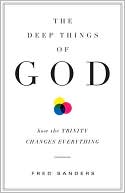"Behold, what I have seen to be good and fitting is to eat and drink and find enjoyment in all the toil with which one toils under the sun the few days of his life that God has given him, for this is his lot. Everyone also to whom God has given wealth and possessions and power to enjoy them, and to accept his lot and rejoice in his toil—this is the gift of God. For he will not much remember the days of his life because God keeps him occupied with joy in his heart. There is an evil that I have seen under the sun, and it lies heavy on mankind: a man to whom God gives wealth, possessions, and honor, so that he lacks nothing of all that he desires, yet God does not give him power to enjoy them, but a stranger enjoys them. This is vanity; it is a grievous evil. If a man fathers a hundred children and lives many years, so that the days of his years are many, but his soul is not satisfied with life’s good things, and he also has no burial, I say that a stillborn child is better off than he. For it comes in vanity and goes in darkness, and in darkness its name is covered. Moreover, it has not seen the sun or known anything, yet it finds rest rather than he. Even though he should live a thousand years twice over, yet enjoy no good—do not all go to the one place?" (Ecclesiastes 5:18-6:6, ESV)
Enjoyment of life, both its basic pleasures and its toil, is the one good that the Preacher continues to put forward. If there is meaning, then it must be found in sincere joy. The truth is so obvious that we often miss it. What we are searching for in life is not meaning and significance, but rather the joy that comes with meaning and significance. All human activities, choices, endeavors, accomplishments are ultimately quests for joy. The oppression, evil, and suffering encountered in life is endurable, and only endurable, in the presence of joy (5:20).
When the Preacher states that man will not remember his days because God keeps him occupied with joy, it may sound like he speaks of diversion. The friends of the great atheistic philosopher Bertrand Russell kidded that Russell had the “morals of a goat.” In all seriousness, Russell suggested that his promiscuity was a necessary diversion in order to cope with life’s despair. Sensual pleasure distracted his mind from reality. I don’t think the Preacher is speaking of such diversions, for that would seem to contradict 2:1-11. Rather, I think the Preacher speaks of a real, existential, and sincere joy.
The problem of course is how does one experience real joy. To this issue the Preacher immediately turns. A man who cannot enjoy the life he is given is worse off than a still born child. It matters little if the man lacks nothing of his heart’s desire, or to quote Jesus: “If he gains the whole world,” and yet lacks the capacity to enjoy it. The prosperous man’s end is the same as the still born, but the still born baby never had to endure the oppressing despair of a meaningless existence. So, though the Preacher has not yet given the answers necessary for living in real joy, he has revealed the absurdity of living without it. And that in itself is a call to us to ponder whether we are merely diverting our attention with triviality, seeking to endure a life of vanity, or striving with all our might for real joy.









No comments:
Post a Comment